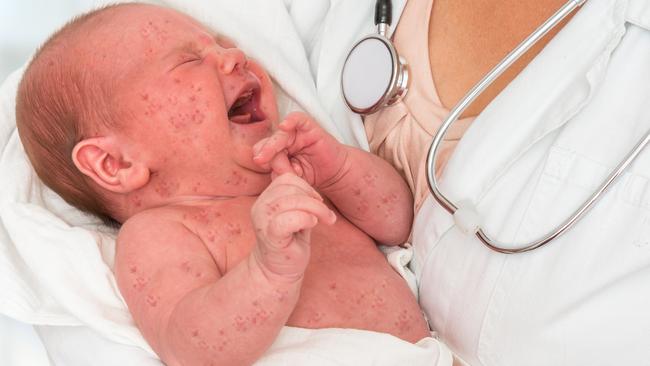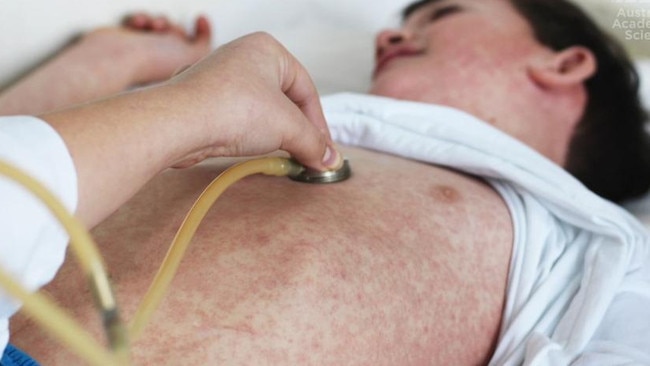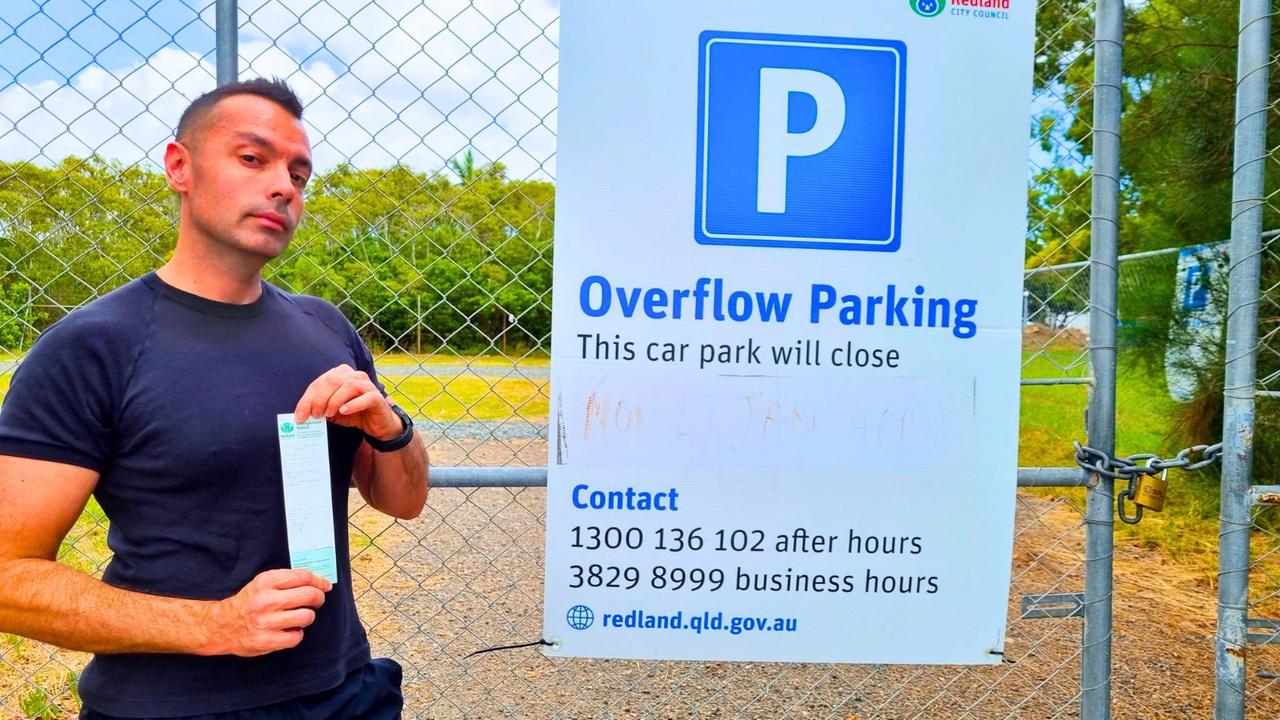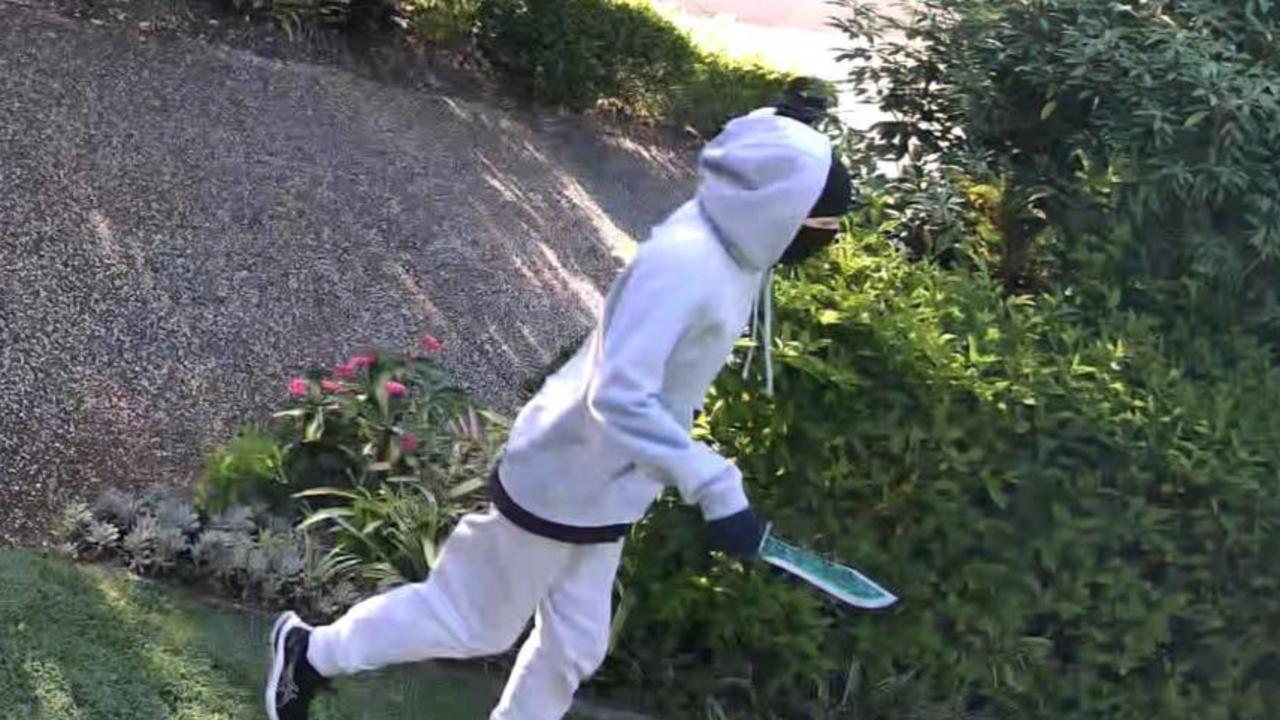Queensland measles cases double in less than a month
The number of Queensland measles cases has doubled in less than a month, with a family of five the latest victims to the highly contagious disease.

QLD News
Don't miss out on the headlines from QLD News. Followed categories will be added to My News.
FIVE members of the one Queensland family have been diagnosed with measles.
The cases are among six new measles diagnoses on Brisbane’s southside and take notifications for the highly contagious virus in Queensland so far this year to 47.
That’s more than three times the 14 measles cases recorded in the state for the whole of 2018.
MEASLES CASES SURGE AS ANTI-VAXXERS UNDERMINE HEALTH MESSAGES
GASTRO QLD - OUTBREAK PROMPTS HEALTH WARNING
Numbers of measles cases in Queensland have almost doubled in less than a month.
Public health physician Kari Jarvinen said that due to the ongoing transmission of measles in New Zealand, Samoa and other countries, it was particularly important for travellers to ensure their vaccinations were up to date before leaving Australia.

“Measles is very contagious and remains airborne up to 30 minutes after the person has left the room,” Dr Jarvinen said.
“It is spread by tiny droplets through coughing and sneezing.
“If people are adequately vaccinated with two recorded doses of measles, mumps, rubella vaccine, they are very unlikely to get the disease.
“Those who are unsure or have concerns about their immunity to measles should contact their doctor to check whether they have had two doses of the vaccine. No-one wants to risk becoming ill or requiring hospitalisation for themselves or children, and the subsequent days off work, university, school or daycare.”
Despite an influx of cases this year, infectious disease specialist Robert Booy said Australia’s measles-free status, which was declared in 2014, remained intact.
“We lose that status if an outbreak continues for more than a year,” Professor Booy said.
“We don’t have that at the moment. That’s something that we’re careful about, getting on top of local outbreaks that are brought in from overseas.
“It’s very important that we don’t let our defences down.”

Professor Booy said about one in 1000 children who contracted measles would die from it and one in 1000 would develop severe encephalitis, an infection of the brain, which could lead to brain damage.
Early measles symptoms include a fever, runny nose, tiredness and sore, red eyes. This is followed by a blotchy red rash, which often starts on the face before spreading.
Symptoms usually start around seven to 10 days after contact with an infected person.
People concerned they may have measles should phone their medical practice or hospital before attending so that staff can take precautions to avoid spreading the disease to others.
For more information, call 13 HEALTH.


